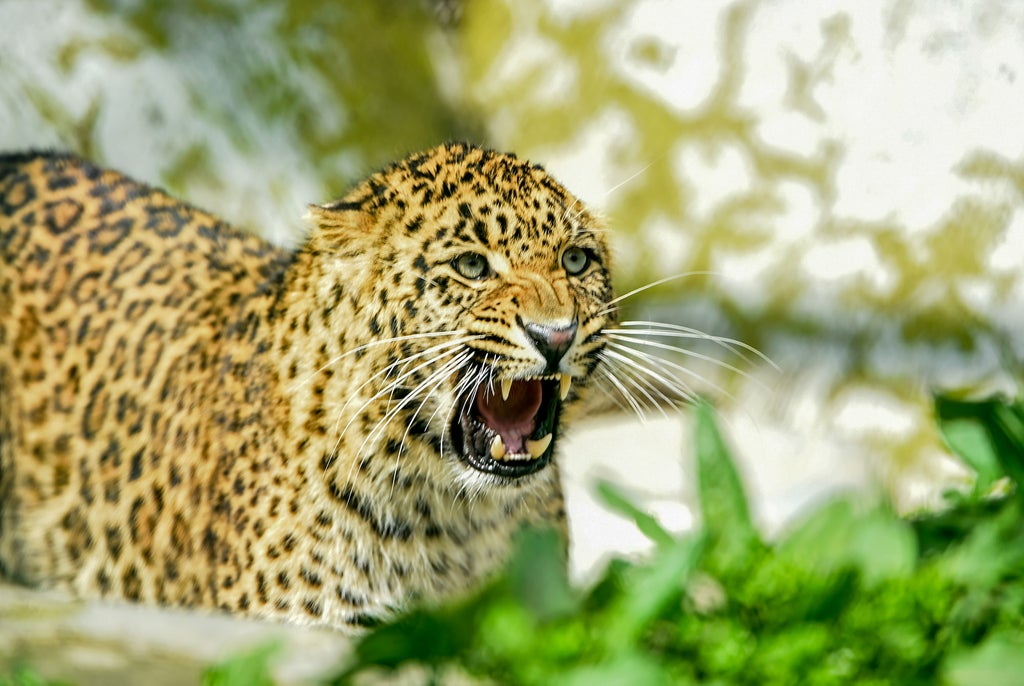Scientists detect novel coronavirus in wild leopard cub in India

Veterinary scientists in India have detected the novel coronavirus in the carcass of a wild Indian leopard cub, marking the first reported instance of the viral infection in a free roaming wild feline.
The yet-to-be peer-reviewed research, posted in the preprint server bioRxiv, revealed that the one-year-old cub, which was found dead in mid-October, just months after the second wave of the pandemic in India had receded, was infected with the Delta variant of the SARS-CoV-2 virus.
These findings underscore the need for intensive screening of wild animals to track the evolution of the coronavirus, and to assess the carrier status of SARS-CoV-2 among wildlife species, said the scientists, including Gaurav Kumar Sharma from the Indian Veterinary Research Institute in Uttar Pradesh.
“After we learned that lions in Hyderabad and Chennai zoo were getting infected with the coronavirus from humans, we began surveying wildlife for the viral infection,” Dr Sharma told The Independent. “We found this dead leopard cub in October and found lesions indicative of coronavirus infection.”
“Leopards, compared to other felines, are less shy around humans, and this one may have likely gotten infected from humans in the nearby village, or from some food it may have eaten there – we aren’t sure,” he added.
Based on teeth marks on the cub and other pathological signs in its brain, spleen, lymph nodes, and lung tissues, researchers said the cub may have died after a fight with other animals some time after it began showing Covid-19 symptoms.
“Sometimes when these feline cubs start showing symptoms of any infection in the forest, they are abandoned by their groups and this one may have been attacked by another wild animal when it was roaming alone,” Dr Sharma said.
Genetic sequence of the spike protein of the virus from the leopard showed “very high resemblance” with that of sequences of the Delta variant which contributed to the devastating second wave of the Covid-19 pandemic in India last year, the study found.
The spike protein sequence was also similar to those generated in a previous study from infected Asiatic lions from Jaipur and Etawah in India, the scientists noted.
With several studies finding evidence of the coronavirus jumping from humans to animals such as lions, tigers, minks, and wild deer, Dr Sharma said the need of the hour was to increase the surveillance of infected wild animals as any of these may act as a reservoir for the evolution of the virus.
The US department of agriculture reported last year that more than a third of white-tailed deer in the state of Ohio were infected with the SARS-CoV-2 virus with evidence of deer-to-deer spread.
Based on the research published in the journal Nature last month, study lead-author Andrew Bowman said the virus may have found a “new maintenance host outside humans”.
Another study published last year also found similar prevalence of Covid-19 infection in Iowa deer and those in Canada.
“The virus is finding new host in some wild animals. Many experts believe it may become endemic and never completely be eradicated as it finds new animal hosts,” Dr Sharma said.
“Detection of SARS-CoV-2 in free ranging leopard when incidences of human Covid-19 have dropped to significantly lower level underlines the necessity to intensify the screening and check for development of carrier status in wild felids,” the scientists wrote in the study.
At the time the leopard was found dead in October 2021, coronavirus cases in India had dropped to less than 10,000 new reported infections per day.
India is now in the middle of a new wave of infections as it has recorded more than 250,000 daily cases for the past five days. Since the pandemic first broke out in 2020, India has recorded more than 37 million cases and 486,451 deaths.
For all the latest Science News Click Here
For the latest news and updates, follow us on Google News.

